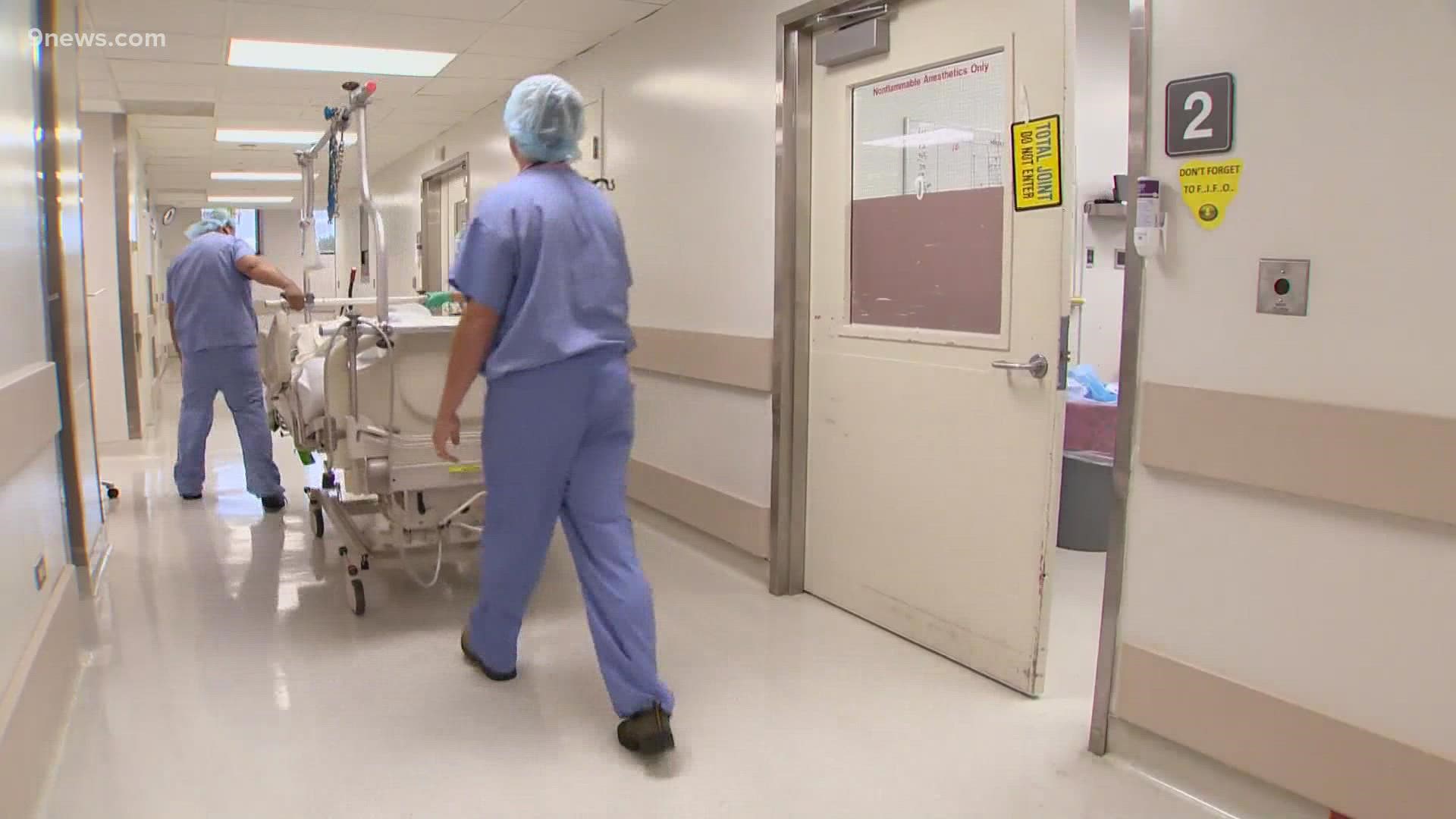COLORADO, USA — On Sunday, 93% of acute care beds were in use in Colorado – only 777 out of the state's 8,728 acute care beds were available.
Less than a week ago, the Colorado Hospital Association (CHA) said that the Combined Hospital Transfer Center (CHTC) was raised to Tier 3. Now, CHTC operates as the only single, statewide point of contact for any hospital in Colorado that needs to transfer patients due to capacity issues.
For the first time since the COVID-19 pandemic began, Colorado patients can be transferred to any hospital in the state without their consent if deemed necessary by the CHTC.
"This is a way to make sure we are using all of those available beds, and many of those may be in our rural hospitals," said Cara Welch with the Colorado Hospital Association. "We are looking at what patients are in our larger hospitals that maybe they just need a couple more days before they are ready for discharge. They are recovering well but they are not quite ready to move out of the hospital. How can we move those patients out and free up the resources at the larger hospital?"
Welch said an increase in patient volumes at larger hospitals is part of the reason the state moved to Tier 3. Typically, patients in a rural part of the state who need more acute care are transferred to a facility on the Front Range. Welch said transfers from the metro area to rural communities could become more frequent.
"To make that transfer happen, there might be a patient at the metro hospital that needs to get transferred to the rural facility, so they can free up that acute care bed," she said.
Jennifer Riley, the interim CEO at Memorial Regional Health in Moffatt County, said patient volume at her rural facility is "OK" right now. If they get full, she said Tier 3 makes transfers much easier.
"Having a centralized resource to figure out where that is, it helps speed up the access to care that patient needs," she said. "There’s less of a delay in getting them that care."
If a patient is moved from a larger hospital to a rural area, Welch said that person is most likely someone who is expecting to be discharged in a day or two. CHA said they are trying to keep people as close to home as possible.
"We know it is difficult," she said. "We know it is inconvenient when you do get moved to a hospital further from your home, but we are doing it in a way that is still with safety and patient quality at the forefront."
SUGGESTED VIDEOS: COVID-19 Coronavirus

